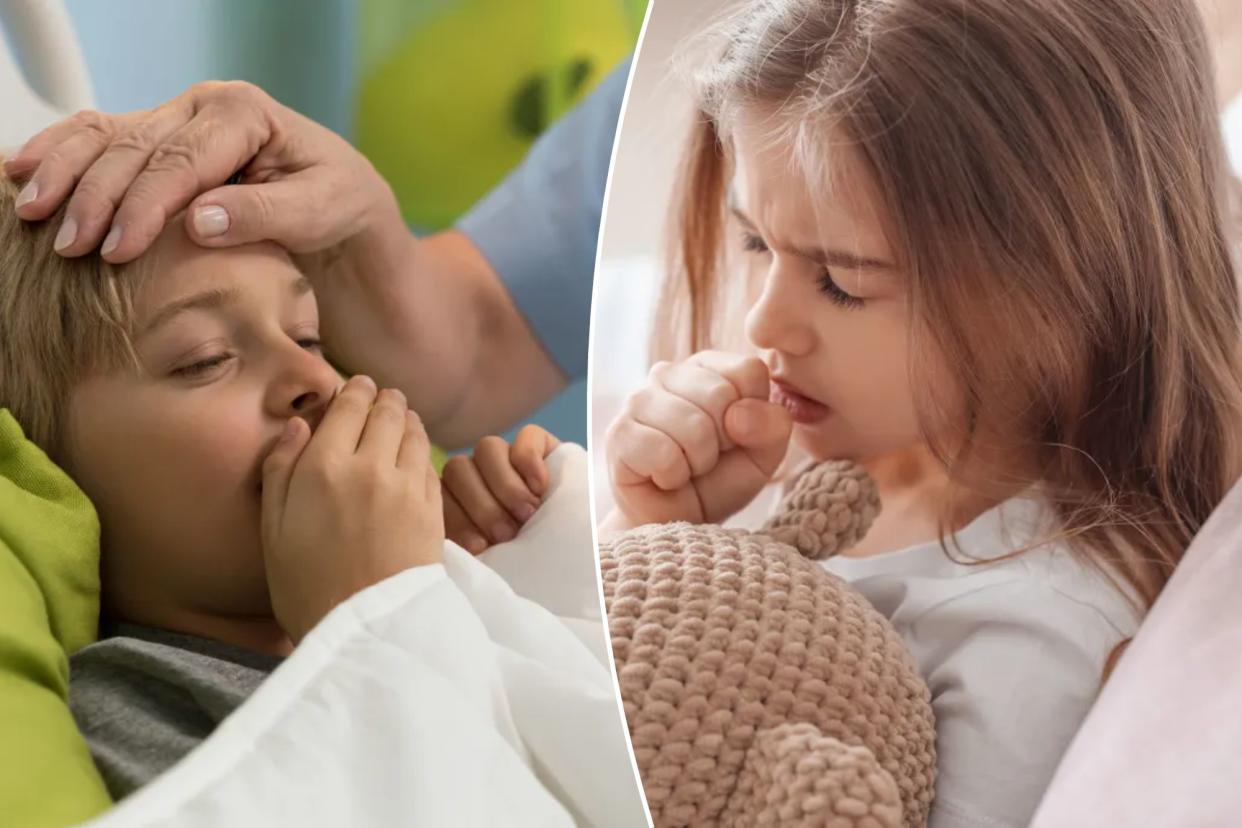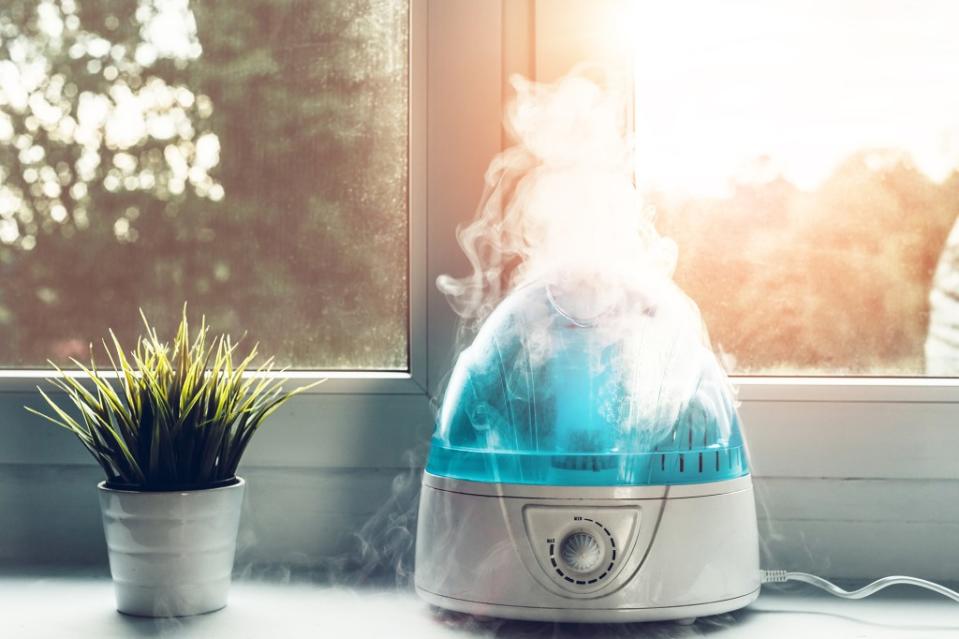Kids spend up to 140 days with cold symptoms each winter — here’s how to treat every type of cough

Sick of winter yet?
Children can suffer from seven to 10 respiratory infections and spend up to 140 days with cold-related symptoms during the dreaded cold and flu season, Dr. Melanie Wilson-Taylor, a pediatrician at NewYork-Presbyterian Komansky Children’s Hospital, told Health Matters.
Heather Baharestani, a 39-year-old mom and advertising executive from Manhattan, told The Post that her 3-year-old son frequently experiences minor cold symptoms like a runny nose and cough throughout the year, but his symptoms ramp up in the fall and winter.
“It’s just part of being a parent, you just gotta roll with the illness that comes with it,” she said.
There are several reasons for a cough, according to the Mayo Clinic, including the common cold or flu, pneumonia, asthma, exposure to an irritant like smoke or dust, or a serious condition like cystic fibrosis.
A cough is the body’s way of keeping the throat and airways clear.
“Many of the coughs are caused by colds. But we always tease out the different kinds of coughs and figure out if there’s something more serious happening versus just recurrent viral infections,” explained Wilson-Taylor.
Diagnosis

Wilson-Taylor tells parents to track how long and often their kids cough.
She said it’s helpful for doctors if parents can record their child’s cough so it can be evaluated for abnormal signs of respiratory distress.
Kids can also be tested for the flu, RSV, strep, COVID-19 or they can undergo more advanced pulmonary tests to determine if they have asthma.
Types of coughs
Cold: Coughs caused by a common cold are often accompanied by a runny nose. Symptoms may worsen at night because congestion in the nose and sinuses drains down the throat while children lie in bed.
COVID-19, flu and RSV: These viruses can cause inflammation in the lower airways and spur more serious illnesses that require hospitalization. Wilson-Taylor suggests kids get vaccinated against these viruses.
Croup: Croup is an infection of the upper airway that can cause a “bark”-sounding cough like a dog or seal. Children may require medication and observation in a hospital if their croup becomes severe.
Asthma: A chronic lung disease, asthma can be caused by an immune system reaction to a substance in the lungs, according to the National Heart, Lung, and Blood Institute. It can also be triggered by viruses, irritants like smoke or allergies.
Wilson-Taylor said that signs of asthma include kids making a wheezing or whistling sound or not being able to speak in full sentences because of their coughing. Parents should seek medical attention as soon as possible if they suspect asthma.Whooping cough: This cough, which stems from a highly contagious bacterial infection, is also called pertussis or the 100-day cough. It’s characterized by a deep and heavy coughing sound.
“Kids may cough for minutes at a time, and when they end the cough, they make a whooping sound,” said Wilson-Taylor.
There are vaccines for whooping cough — the illness “can be very dangerous” for infants who haven’t yet been vaccinated.

When to see a doctor
Wilson-Taylor said that if a child has a cough or fever that lasts more than five days, they should see a doctor. Parents should also seek medical help if the cough interferes with the child’s daily activities.
Length of illness
A cough or cold can be the worst at the three- to five-day mark, but symptoms can up to last two weeks. A cough from pneumonia might last a month after a child is sick.
A long cough may not be related to a virus at all, though.
Megan Isaacs, a mom and jewelry designer who lives in Brooklyn, told The Post that her 3-year-old daughter’s cough persisted for over a month last fall.
It turned out to be seasonal allergies.
“She was coughing quite heavily for a long time. She would wake up in the middle of the night coughing so hard she would vomit, but she never had a fever,” Isaacs told The Post.
“We took her to the pediatrician, who suggested allergy medicine but said it would take two weeks to kick in. We put her on allergy medicine and it cleared up in less than a week.”

Treatment
Wilson-Taylor said that most coughs from viral infections go away without medication, but if the cough is caused by an ear infection, sinusitis or pneumonia, then antibiotics can help. In Isaacs’ daughter’s case, allergy meds did the trick.
The doctor said that while it may be tempting to give a kid cough suppressant, they’re not proven to work — and some ingredients can potentially be harmful.
Some cough meds have the fever reducer acetaminophen in them and, if accidentally given with other medicines that have acetaminophen, it can cause an overdose.
She recommends parents get a humidifier for their kids and make sure they drink lots of fluids.
Honey can soothe the throat as well, but should never be given to kids under the age of 1 because it can lead to botulism, a serious illness caused by a toxin that attacks the body’s nerves.
A nasal saline spray can help, as can vapor rubs, although rubs might have menthol in them — which could potentially irritate a young child’s eyes, skin and lungs.
The Post reached out to NewYork-Presbyterian reps for comment.

